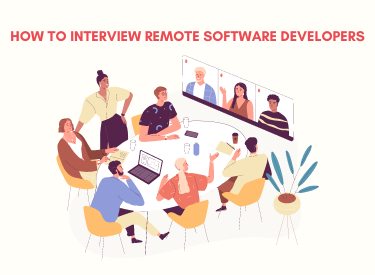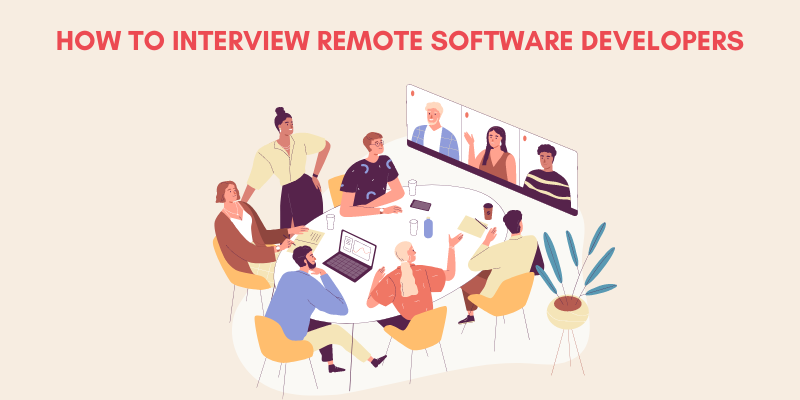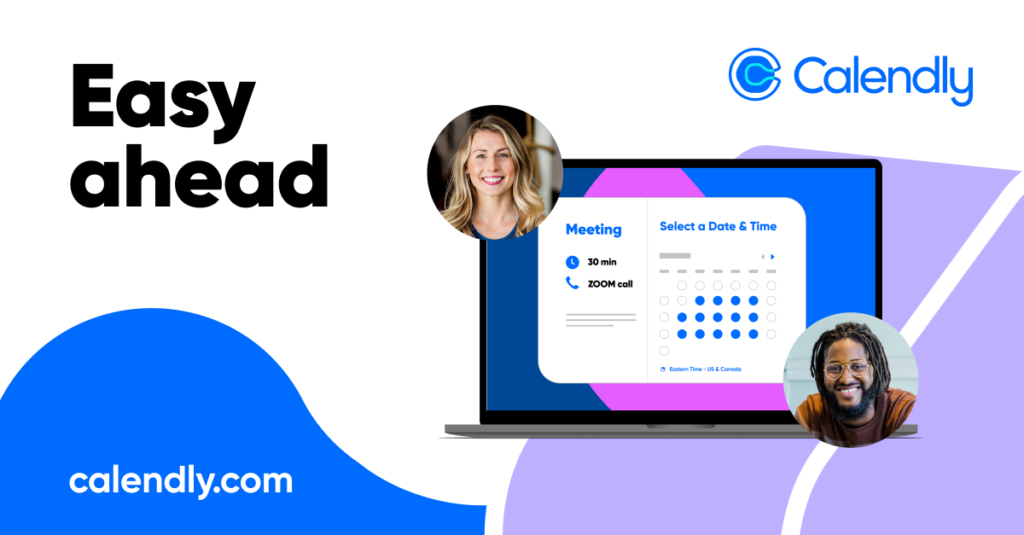How to Interview Remote Software Developers

How to Interview Remote Software Developers

A company’s most valuable asset is its employees. Hiring the right people will determine whether or not your projects and company succeed. However, finding the right people is not so simple.
Interviewing is a skill; remember that the candidate is also interviewing you. The software developer will lose interest if you are unprepared or make a poor first impression. You won’t know if you have a qualified candidate unless you ask the right questions.
To complicate matters, the interviewing landscape is changing; most software jobs are now remote and will likely remain so. Remote interviews present their own set of challenges. With candidates and interviewers dispersed across time zones, it’s critical to have a streamlined scheduling process. The days of asking a candidate to write a solution to a technical problem on a whiteboard are long gone. To conduct a technical assessment of a software engineer from a distance, you will need the appropriate tooling.
Finding someone with only technical skills isn’t enough; they’ll also need to collaborate and communicate effectively with a team, so you’ll need to assess their soft skills. The proper process and tools will provide a road map to interview remote software developers successfully.
Let’s get this party started.
Three steps before beginning the interview remote software developers
Before you begin the interview, ensure that you and your team are well prepared, know who you are looking for, and have all of the necessary tools to conduct the interview remote software developers; this will help you navigate this demanding process smoothly. Candidates (software developers) will see your professionalism and remain interested in your offer.
Make sure you’re ready.
Besides question preparation, review the job description, requirements, and responsibilities to ensure that you and the candidate are on the same page.
Prepare your workspace ahead of time for the interview. Take notes with a pen and paper (avoid distracting the candidate with keyboard clicking).
Prepare for the worst-case scenario. Prepare a backup plan for common problems such as:
- During meetings, the internet connection may be slow or completely unavailable. Take your mobile phone hot spot with you.
- Check that your laptop battery is fully charged for the duration of the meeting. Keep a power adapter nearby.
- Your camera and microphone may malfunction. Before the meeting, double-check it.
Choose remote interviewing tools.
Businesses have begun to transition to entirely remote employee hiring as remote work becomes more prevalent. These employees may be dispersed across multiple time zones or states, impacting how businesses conduct interviews and hire new team members.
Your company must use the proper tools and software to ensure the success of the remote interview process. The following options can help with virtual interview facilitation, making the process easier for hiring managers and job candidates.
Here are some remote interview tools to assist you with your interviews:
Interview scheduling software
Scheduling video or phone interviews can be complex, primarily if you communicate via email. These project management tools can assist you in streamlining the process, which benefits you and the job candidates. This solution is beneficial if you use agile development.
Solutions:
Google meets: Use Google Meet Events to schedule interviews. They will include a link to the meeting, making it simple to attend. Most people have Google Calendar Events are frequently integrated with desktop and phone calendars, ensuring that everyone arrives on time.

Calendly: Another tool for streamlining scheduling is Calendly. With the Pro plan, you can email up to six of your calendars to applicants so they can schedule an interview during your available time slots. Calendly also has a free plan.
Applicant evaluation software
Applicant assessment platforms can help you prepare for your following interview. Conducting assessments before interviewing potential candidates aids in the identification of quality candidates while also saving you time because many interview questions can be answered before the interview.
Solutions:
* VidCruiter is a candidate assessment tool that allows for automated testing of candidates’ hard and soft skills. It takes a different approach to video interviews. The interview software records one-way candidate interviews for your review, saving you time and assisting you in identifying the best candidates for subsequent interviews. This also eliminates scheduling conflicts when interviewing candidates who are already full-time employees and thus unavailable for interviews during regular business hours.
* Harver was developed with the help of industrial and organizational psychologists. The platform supports various pre-employment assessments, from virtual interviews to cognitive, behavioral, and skill assessments. To quickly and easily hire the right people, use scientifically validated assessments, predictive analytics, and workflow automation.
Provide information to the team
Invite other team members to join the interview. Prospective software developers enjoy meeting the people with whom they will be collaborating. The existing team will value the ability to express their thoughts and feelings about each candidate, especially if they are software engineers.
Ensure that each coworker knows who will lead the interview and when. Ensure that everyone understands how to mute their microphone when not speaking to reduce background noise.
Step-by-step instructions for interviewing software developers
1. Schedule your remote interviews.
The most terrifying of all fears is the fear of the unknown (especially for developers). Candidates will feel tremendous relief once they know what to expect.
Schedule all of your interviews ahead of time so that candidates know the interview’s date, time, and length. Back-to-back appointments will also serve as a reminder to stay on schedule and stick to appointment times. Using scheduling tools such as Calendly, candidates can choose an interview time that fits their plan and is convenient for them.
These tools are frequently used to set up automated email and text reminders to ensure that candidates do not forget to attend. It is much easier to ignore a virtual appointment than an in-person one.
2. Send interview summary
Send an email outlining the process to each candidate before the interview. This is essential for any interview, but especially for remote interviews. This could be the candidate’s first time participating in a virtual interview.
Include the following instructions in the email:
- Date, time, time zone, and expected length of the interview
- The names and positions of those who will take part in the call.
- Which tools should they have set up – possibly Google Meet, Zoom, or Microsoft Teams?
- How to configure the tool – do not assume that a software developer can configure all software without instructions.
- How to join the remote interview session, including any login credentials required
- A gentle reminder to run a test before the interview and allow time for troubleshooting.
- What to do if the call is canceled
- How they should prepare for the interview, including examples of the types of questions that may be asked
You should also emphasize the significance of maintaining the etiquette associated with an in-person interview. Attendees for remote interviews should be scheduled on time and in a quiet environment free of distractions.
Remote interviews necessitate additional etiquette. To avoid latency-induced speech overlap, everyone should pause for a few seconds after speaking and speak clearly and directly to the camera. Finally, they should provide a visual cue now and then to indicate their continued presence.
3. Conduct remote interviews with candidates
When interviewing candidates, whether in person or over the phone, consider their technical abilities and expertise and their personal and professional qualities.
Because you are hiring new employees, you must ensure that the dedicated developers you hire have the right attitude for the project and the right personality to work well with your in-house team.
After all, you are the expert on the personalities that naturally fit into your team.
4. Provide helpful feedback
According to LinkedIn, 94% of interviewees want feedback after their interviews to improve. However, only 41% of those eligible have ever received it. Slow feedback is the most irritating aspect of the hiring process for 50% of developers.
As a result, provide candid and timely feedback to your candidates ( those who put in the effort to prepare and sit for the interview).
Remember to thank each candidate for expressing an interest in working for your company. Who am I to say? Candidates who do not get the job may be excellent candidates for future openings.
Indeed, candidates who have previously received constructive feedback from you are four times more likely to return to your company for future job opportunities.
The most commonly asked interview questions
Many software developer interview questions will center on your technical skills, such as which programming languages you are familiar with. We assume that those were completed during the screening process and that you are now interested in learning about your problem-solving and analytical abilities. This will assist you in determining whether a candidate will fit in with the company culture. In this case, it is not enough to be a good software engineer who can write code. Here are some examples of interview questions for software engineers:
1. Describe your most recent project, including any challenges and contributions.
A specific project question will help you better understand how you process information and deal with adversity while working on that task.
It didn’t matter if it was object-oriented programming or something else. Discuss the tasks assigned to you to determine your level of responsibility. Begin your description of the action you took with the steps you took to achieve a goal and end with the project’s outcome.
2. How do you determine the success of a project?
While delivering high-quality software is critical, software that fails to meet the needs of the user and the business adds little value.
Examine the candidate’s ability to think outside the box and solve real-world problems. This frequently refers to identifying a metric to improve and developing a testable hypothesis about your project’s expected impact.
3. Tell me about a failure in your professional career.
This can be a difficult question to answer if the candidate is unprepared. Make them feel comfortable enough to admit his/her flaws. Let me know why you are asking this question during the interview; explaining this question allows you to demonstrate your ability to make the best of a bad situation. Following an explanation of the problem, include a description of how you solved it to demonstrate your problem-solving skills.
4. What aspect of our company, product, or team piques your interest?
In the agile software development process, retention is a top priority. Replacing a team member can be costly in recruitment and training time. Look for specifics that speak to the company’s values, past projects, or a job description responsibility that aligns with the career path you can provide.
5. In three years, where do you see yourself?
This question focuses on the skills the interviewed software developer wishes to learn and improve. This allows you to determine whether a candidate will be a long-term employee and whether your objectives align with the companies. Encourage honest responses to this question.
Conclusion
A proper interview is a time-consuming process. To formulate the right questions, you must first become acquainted with the candidate and the role. When conducting an interview remote software developers, you must pay close attention to the candidate’s responses, ask appropriate follow-up questions, and take detailed notes.
Finally, interviewing necessitates careful analysis and a meeting with your team to evaluate the excellent software engineer and the interview process. This may appear time-consuming, but it is well worth the effort. A professional interview will always leave a favorable impression and result in exceptional hires. A poor interview will turn off the best software developers and result in mediocre hires. The people you hire will ultimately determine the fate of your company, so make wise choices.



